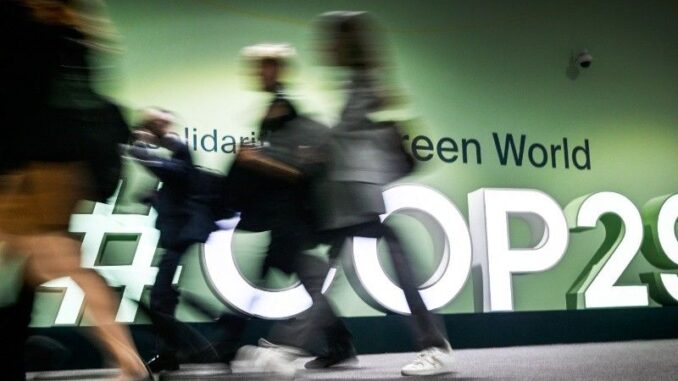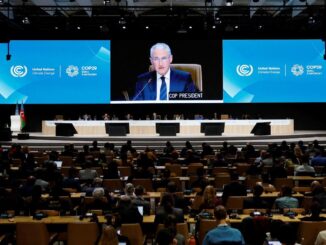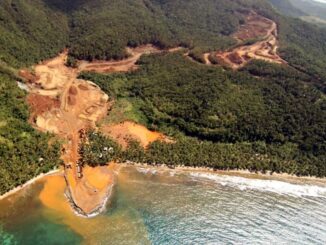
BAKU, Azerbaijan — Representatives from nearly 200 nations awaited a fresh proposal Friday for a potential compromise in marathon climate finance talks on the last day of a hard-fought COP29 summit in Azerbaijan.
The grueling two-week conference in the Caspian Sea city Baku is almost certain to go into overtime, with key details for a deal yet to be released, let alone agreed.
A revised draft had been promised by the hosts for around midday (0800 GMT) on Friday after frantic negotiations that stretched into the early hours within a cavernous sports stadium.
But the text had yet to be published when noon came and went.
A negotiator told AFP on condition of anonymity that the document may emerge at around 6:00 pm — the time COP29 is officially scheduled to end — raising the prospect of talks spilling into Saturday.
The main priority at COP29 is agreeing a new target to replace the $100 billion a year that rich nations provide to poorer ones to reduce emissions and adapt to disasters.
Developing countries plus China, an influential negotiating bloc, are pushing for $1.3 trillion by 2030 and want at least $500 billion of that directly from developed nations.
Major contributors such as the European Union say that such demands are politically unrealistic and that private-sector money must play a large part.
COP29’s Azerbaijani presidency, under pressure to reach a compromise, said earlier Friday it had conducted “an extensive and inclusive consultation process” on the new text.
Azerbaijan, an authoritarian state and major oil and gas exporter, has been accused of lacking the experience and bandwidth to steer such large and complex negotiations.
“This is the worst COP in recent memory,” Mohamed Adow, speaking for the Climate Action Network, said at a press conference, adding that “no deal is better than a bad deal” for developing countries.
Sindra Sharma from the Pacific Islands Climate Action Network, an activist coalition, expressed “a complete sense of frustration” at the talks.
“I’ve never seen a presidency like this, I’ve never seen a process like this,” she said.
The European Union has also called for stronger leadership from Azerbaijan, whose leader, Ilham Aliyev, opened the conference by railing against Western nations and hailing fossil fuels as a “gift of God”.
Missing figure
The new draft is expected to offer figures after an earlier version on Thursday said that developing countries need at least “USD [X] trillion” per year but omitted a concrete number.
UN Secretary-General Antonio Guterres flew back to Baku and took part in the all-night negotiations. He warned on Thursday: “Failure is not an option”.
China, the world’s largest emitter, joined other countries in rejecting the earlier draft but urged “all parties to meet one another halfway”.
Apart from splits over money, many nations fear the climate deal in negotiation does not reflect the urgency on phasing out coal, oil and gas — the main drivers of global warming.
US climate envoy John Podesta said there was “a glaring imbalance” in the text that was sent back for revisions.
Last year’s COP28 summit made a landmark call on the world to transition away from fossil fuels after long negotiations in Dubai.
But a Saudi official speaking on behalf of the Arab Group said the bloc would “not accept any text that targets any specific sectors, including fossil fuel” in Baku.
Shifting mood
The renewed discussion on fossil fuels comes after the US election victory of Donald Trump, who is again expected to withdraw the world’s largest economy from climate diplomacy and ramp up oil and gas extraction.
Other Western nations have also seen a shift in political mood with a backlash against foreign aid and the green agenda.
Developed nations also want to broaden the list of contributors — notably to include China, which provides climate finance, but has no obligations under the UN system as it remains classified as a developing country.
The annual UN-led climate talks come on what is already poised to be the hottest year in history and as disasters rise around the world.
Just since the start of COP29 on November 11, deadly storms have battered the Philippines and Honduras, Ecuador has declared a national emergency due to drought and forest fires and Spain has been reeling after historic floods.





Be the first to comment